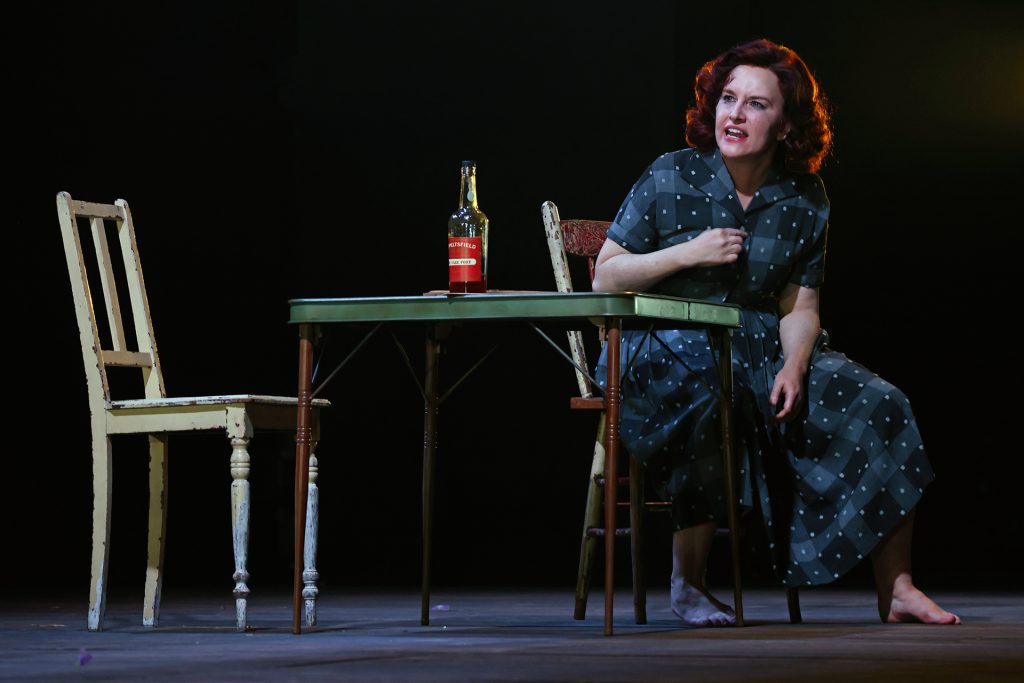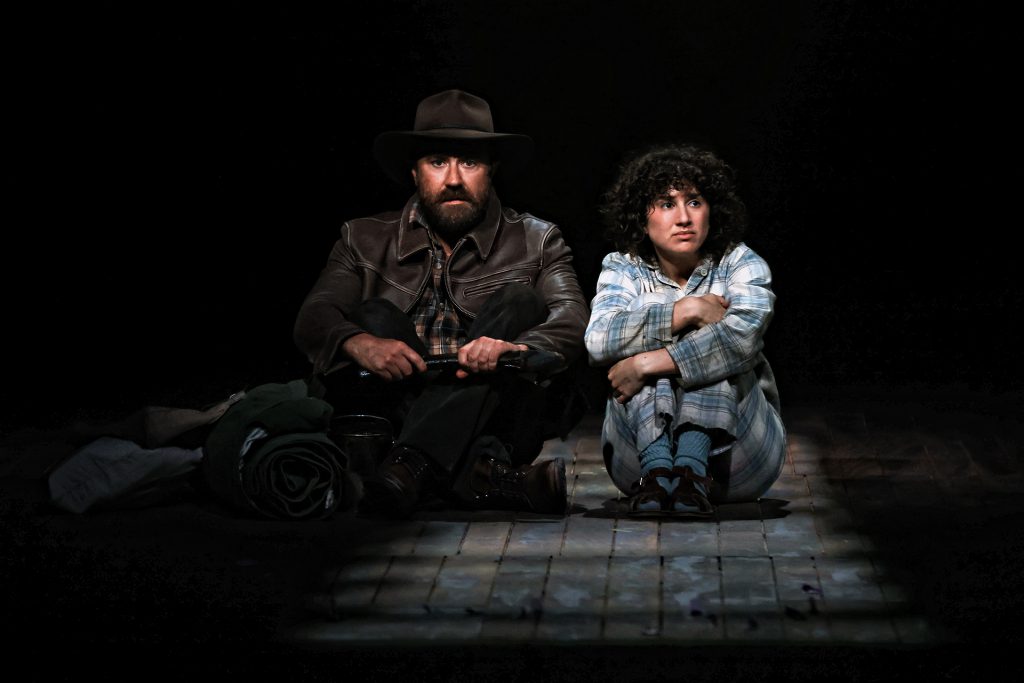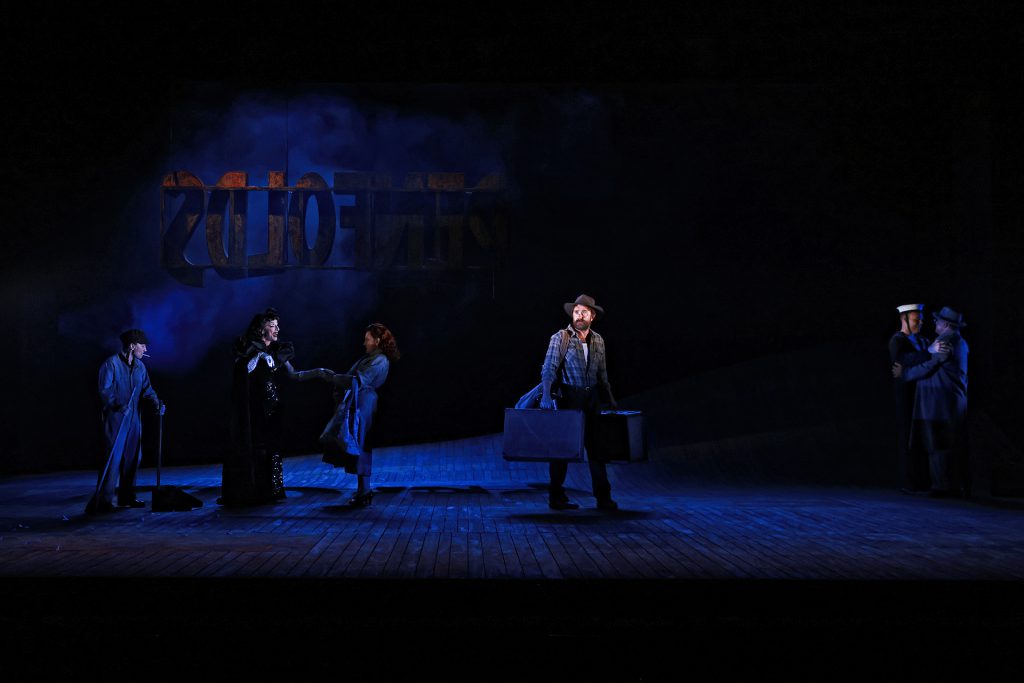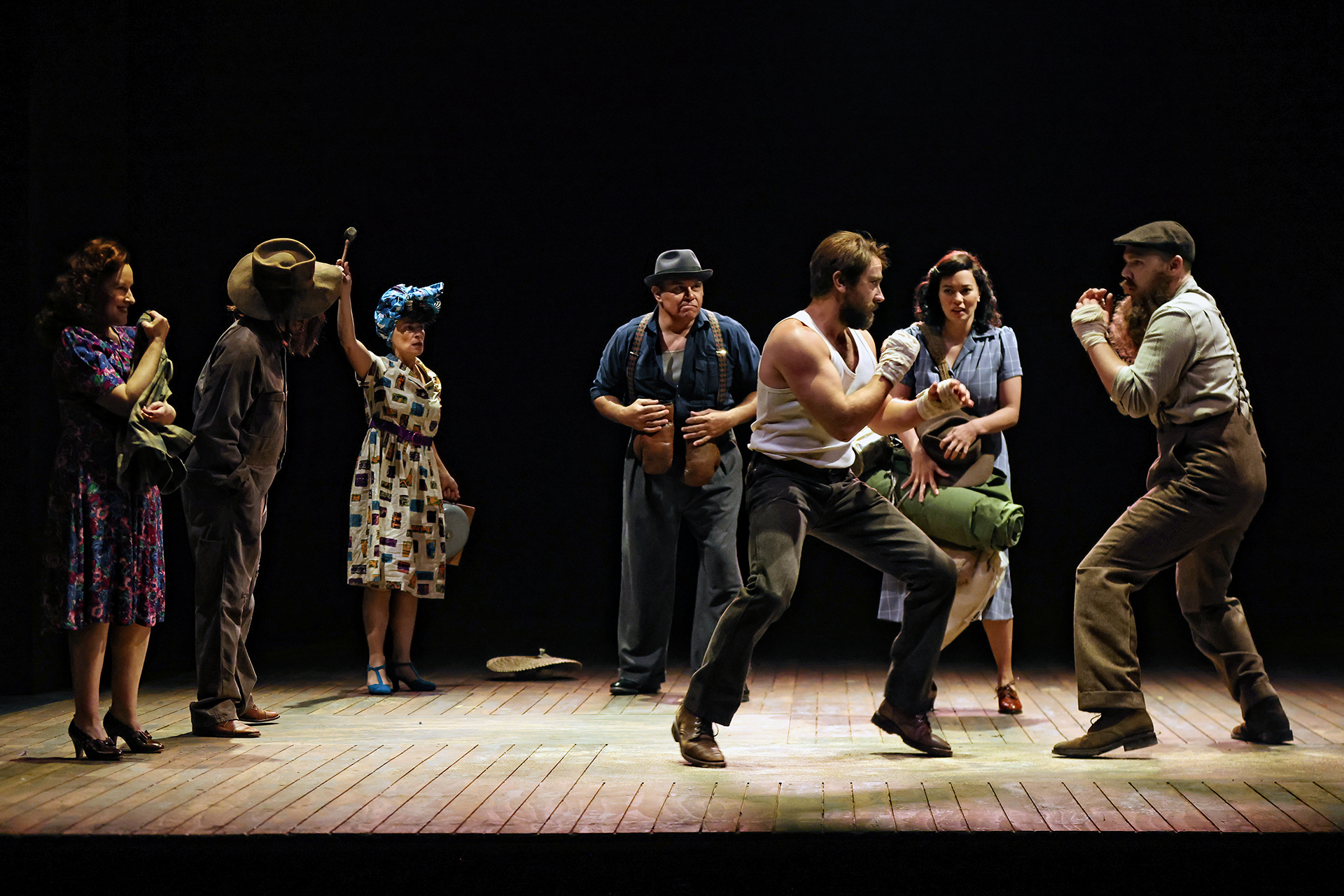There is little public consciousness or romanticising of the idea of the ‘Great Australian Novel’, as there is in America.
Indeed, much has changed here in Australia, where, to this Gen-Z reviewer, the themes of All My Sons feel more immediate than those of The Shiralee. Yet, in truth, The Shiralee reflects all of us more than we might care to admit, and this genre is worth wrestling with rather than allowing it to fade from cultural cringe into eventual amnesia.

The Shiralee, adapted by Kate Mulvany and directed by Jessica Arthur, begins in Depression-era Grafton, where the rugged, practical, jack-of-all-trades swagman Macauley (Josh McConville) returns from stock work to take on his next job: bare-knuckle boxing. In contemporary terms, he’s a man with many side hustles. After abandoning his lover Lily (Catherine Vǎn-Davies), he settles down and marries Marge (Mulvany), then leaves for King’s Cross. On returning home to King’s Cross after months of itinerant work, he discovers a grim scene: Marge in bed with their wealthy landlord Donny (Stephen Anderson), and his nine-year-old daughter Buster (Ziggy Resnick) passed out with a bottle of spirits. In a fit of rage, Macauley nearly kills Donny before scooping up Buster and taking to the well-trodden road, fleeing both Marge and the constabulary in search of solace.
This is a tale of masculinity, violence, innocence, and love. Buster serves as both emotional foil and material mirror to Macauley, much as children often do. Through her, Macauley learns that to feel and to love is to live a richer life, one that mirrors the inherent richness of the world around him. McConville’s portrayal of Macauley was deeply convincing, and Resnick captured Buster’s vulnerability and resilience with sensitivity. Though the land is vast and unforgiving, it is neither empty nor devoid of humanity with complicated but nonetheless loveable characters: the visually impaired First Nations waystation owner Tommy (Aaron Pederson), the swagwoman Matilda (Lucia Mastrantone), and the queer bush poet Desmond (Paul Capsis), among others. These three minor yet vividly drawn characters were particularly well cast and left an indelible impression, the hallmark of a fine production.

The set, designed by Jeremy Allen, evoked the woolshed with a wooden plank floor that curved gently upward in the far corner, a striking metaphor for the changes unfolding in Australia then and yet to come. Together with ghost gums and inbuilt campfires, it aptly conjured the rugged, stripped-back world of The Shiralee. The lighting, designed by Trent Suidgeest, played deftly with brightness and shadow, immersing the audience in the harshness reflected in the anti-hero Macauley himself.

This may well be Australia’s answer to The Grapes of Wrath. And while the world of the Sydney Opera House in 2025 feels far removed from Depression-era King’s Cross and the country towns of New South Wales, Kate Mulvany’s adaptation compellingly evokes our roots in a way sure to resonate with many.
